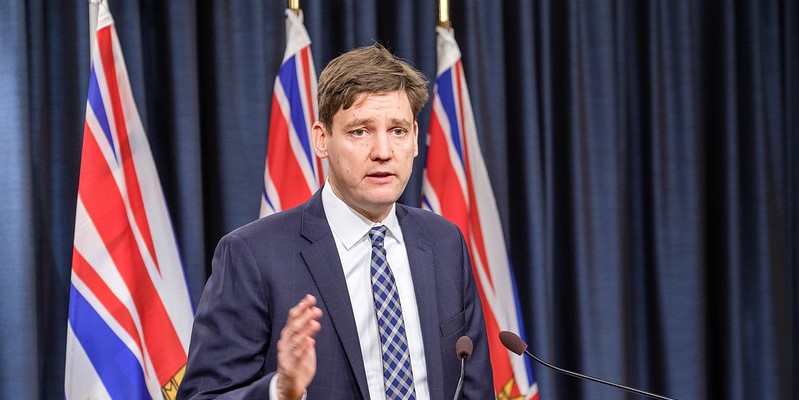B.C. government’s land use plan would severely damage province’s investment climate

In a move that will likely surprise many British Columbians and indeed Canadians across the country, B.C.’s NDP government wants to change the province’s Land Act and essentially establish a co-management partnership with more than 200 First Nations who will become joint landlords of more than 90 per cent of B.C. and own veto power over any land-use decisions.
The NDP, which holds a 56-seat majority in B.C.’s 87-seat legislature, plans to table the proposal in the spring. If passed, the revised Act will represent a massive barrier to infrastructure projects in the province and a death nail for investment.
And that’s the last thing the province needs.
Between 2010 and 2019, the decade preceding COVID, B.C. attracted less private investment per worker than the national average and far less than Alberta, Saskatchewan and Manitoba. While B.C. fared slightly better in 2021, the latest year of available data, the province’s per-worker investment remains only 62 per cent of the level in the United States.
As expected, the lack of business investment has produced lower incomes. According to a recent report comparing the median employment income of 59 large metropolitan areas in western Canada and the western United States, of the bottom 10 cities, five were in B.C. with Vancouver, the province’s commercial hub, ranking 47th at CA$37,300, far behind top-ranked Silicon Valley (CA$73,895).
What’s behind B.C.’s poor investment climate? Mainly poor government policy. Consider the province’s business tax system, which includes the highest total tax rate on businesses in Canada. In 2020, B.C.’s total business tax rate, including federal business taxes, was 25.6 per cent, dwarfing the national average (15.6 per cent) and the rate in neighbouring Alberta (12.1 per cent).
On the regulatory front, a 2022 survey of mining companies ranked B.C. 27th of 62 jurisdictions for mining investment attractiveness and a 2023 survey of petroleum companies ranked B.C. 15th of 17 jurisdictions in Canada and the U.S. for its investment attractiveness. Survey respondents cited the same three deterrents to investment—land claims, protected areas and environmental regulations.
Moreover, according to the B.C. government’s own economic estimates, its regulations to reduce greenhouse gas emissions (GHGs), known as CleanBC, will cost the province $28 billion in lost economic activity by 2030, which means by the end of the decade British Columbians will be $4,600 poorer per person than they would be without these regulations.
Which brings us back to the Eby government’s plan to co-manage all Crown land—which comprises 94 per cent of all land in province—with more than 200 First Nations.
Currently, British Columbians, through their elected provincial government, are the final decision-makers about what happens on public lands—from how the land is used for communications and electricity transmission towers, to mining, tourism, agriculture and transportation infrastructure. The Land Act also covers lakes, rivers and the coastline, which impacts anything on water including future hydro projects.
It’s hard to overstate how this change would affect B.C.’s investment climate, particularly given existing concerns about land claims and regulations. The province will become essentially un-investable in many industries that do business on Crown lands or water.
Clearly, the uncertainty and sheer magnitude of this plan deserve closer scrutiny by British Columbians who should have a greater voice in these proposed changes. The Eby government hopes to ram these changes through the legislature, without full transparency and little public input, and crucially without disclosing any analysis of the economic impact. But make no mistake, the economic impact will be widespread and profound.
At a minimum, the government should delay these changes and allow a robust debate to occur. More fundamentally, British Columbians should decide on changes of this significance through the electoral process—either an election or referendum. That’s how unprecedented and profound the move towards de facto co-ownership for First Nations of all Crown land is to the future of British Columbia.


